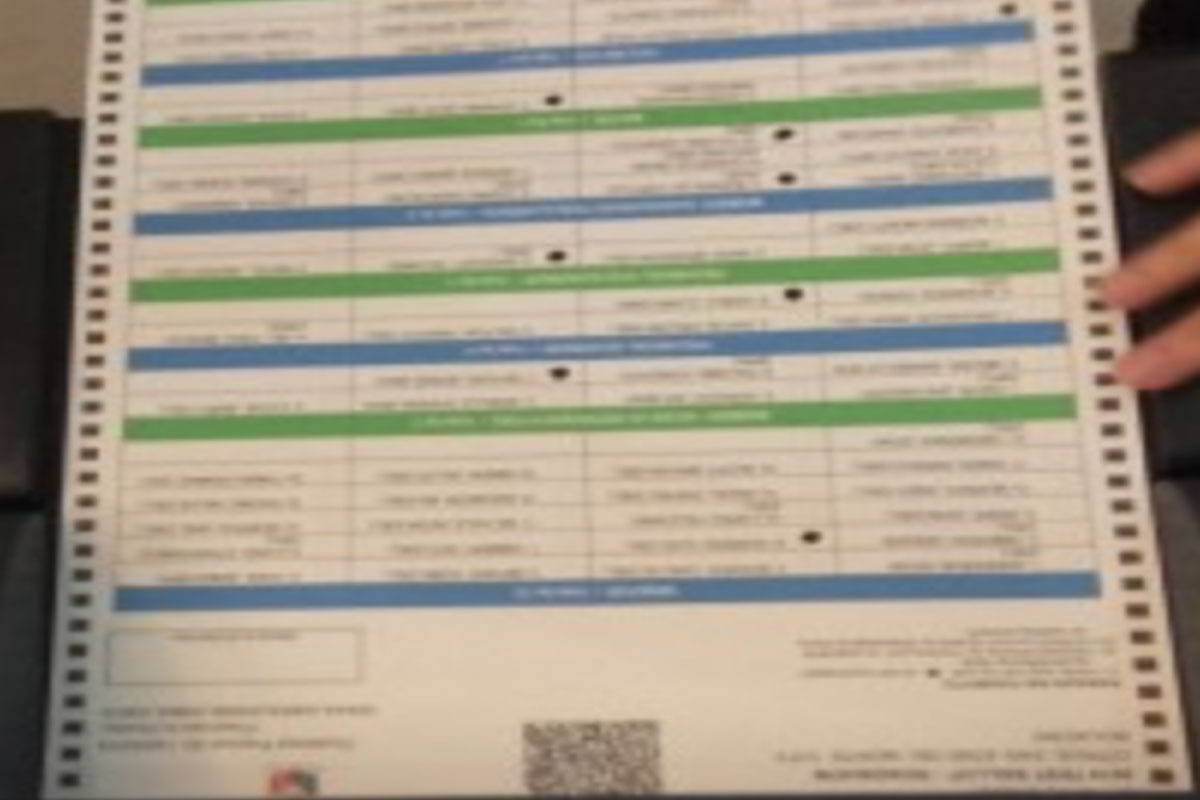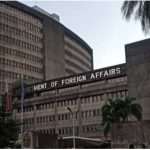
Chances good for Congress to pass bill postponing BSKE
CAMARINES Sur Rep. LRay Villafuerte has expressed belief that chances are good for current elective village and youth officials to remain in office longer, as mandated under the Constitution and the Local Government Code (LGC), in light of pending measures in both the Senate and the House of Representatives resetting the next Barangay and Sangguniang Kabataan Elections (BSKE) now scheduled this December.
“I believe chances are good for our barangay and SK officials to hold office for at least three years, as originally mandated by law, instead of just two years if the BSKE were to be held on Dec. 1, 2025 as now scheduled, in light of pending measures in both chambers seeking to move back the next balloting for these local elective officials,” Villafuerte, a former Camarines Sur governor, said.
Villafuerte, National Unity Party (NUP) president, voiced optimism about such prospects for a poll postponement in light of the Jan. 14 approval by senators on third and final reading of Senate Bill (SB) No. 2816, which, among others, aims to reset the upcoming BSKE as presently scheduled this December to October 2027.
In the House of Representatives, its committee on suffrage and electoral reforms approved last year the Villafuerte-authored House Bill (HB) No. 10344 that seeks to move back the next BSKE to 2026, instead of on Dec. 1 this year.
Villafuerte is also a co-author of a bill changing the terms of barangay officials that has been approved by the House committee 0n local government.
With the Senate’s approval of SB 2816, Villafuerte remains hopeful that the House could likewise give its final nod to the BSKE measure in the coming session weeks.
Both chambers returned to work on Jan. 13 after the yearend break of the 19th Congress, and will adjourn on Feb. 8 for the midterm elections on May 12.
The Legislature will then reopen on June 2 and hold session till its sine die adjournment on June 14, formally ending the 19th Congress.
The CamSur congressman hoped that “the House of Representatives could similarly act with urgency and purpose” on the pending bill / committee- approved bill likewise seeking the BSKE poll postponement, to restore consistency and stability in the triennial balloting for barangay and SK officials.”
“We will be able to put back consistency, constancy and stability in the BSKE once the 19th Congress writes new legislation moving back the next polls to October 2026, in lieu of December this year as now scheduled, in conformity with the electoral mandate of our Constitution and the 1991 LGC for our local elective executives such as barangay and SK officials to serve for three-year terms,” Villafuerte said.
Villafuerte introduced HB 10344 with CamSur Rep. Miguel Luis Villafuerte and Bicol Saro Rep. Brian Raymund Yamsuan.
The poll postponement bills were introduced in both chambers following the decision of the Supreme Court (SC) in 2023 upholding Republic Act (RA) No. 11935, which moved back the BSKE from Dec. 5, 2022 to Oct. 30, 2023.
In this SC ruling, the High Tribunal ruled poll postponements as unconstitutional as it allowed the next BSKE to take place on Oct. 30, 2023, but set the subsequent balloting on the first Monday of Dec. 2025 and “every three years thereafter.”
The substitute bill in the Senate was introduced by Sens. Imee Marcos, Christopher Go and Francis Tolentino.
In the event that the House is able to pass its version of the measure, lawmakers will have to reconcile the features of this proposal, as HB 10344 keeps the three-year terms of these local officials and schedules the next balloting in 2026, while the Senate-passed SB 2816 aims to stretch their terms of office to four years and sets the next polls in October 2027.
Because the incumbent barangay and SK officials were elected in the BSKE polls last Oct. 30, 2023, Villafuerte explained that, “They will in effect be serving for shorter two-year terms if the next balloting for these local officials were to be held on Dec. 1, 2025 as now scheduled.”
“Thus, we are pushing the holding of the next BSKE in 2026, instead of next year, precisely to bring back regularity to this triennial electoral exercise as set in the Constitution and the LGC of 1991 as well as RA (Republic Act No.) 11462 that remains as the controlling law on the BSKE,” he said.
The former governor disagreed with last year’s view of a National Citizens Movement for Free Elections (Namfrel) official that regular elections guarantee that the government remains accountable to the people as delaying this political exercise erodes confidence in this electoral process and in democratic institutions.
A Namfrel official was quoted in the media last year as opposing the proposed deferment of the BSKE to 2026, claiming this would create uncertainty and deprive citizens of their right to choose their local leaders regularly.
Dismissing this view, Villafuerte pointed out that letting incumbent local officials serve for just two years will mean “shortchanging both these elective officials and their respective constituents who had voted them to office as their shorter terms diminishes the obligations of the incumbent BSK officials to serve their constituents, and lessens their accountabilities in the exercise of the power vested in them by the people’s free choice.”
“An elective term is meant to be served out in full,” Villafuerte said. “HB 10344 does not attempt to extend the term of office of the incumbent BSK officials; Rather, it intends to harmonize the mandated three-year term of the incumbents and the next BSK elections.”
“In effect, this gives the present set of barangay and SK officials a full three years to serve and fixes the term for BSK officials to be every three years as mandated by the Constitution and the 1991 LGC,” he said.
Villafuerte noted that the validity and rationality of the reasons that he and the other authors of HB 10344 had cited to press for the holding of the BSKE in 2026 are the apparent reasons why their proposal had racked up immediate support from their peers in the House of Representatives.
Even the Commission on Elections (Comelec) has pointed out that holding the BSKE in 2026 will give this poll watchdog some breathing space as it also prepares for the midterm polls in May 2025, Villafuerte said.
Comelec spokesperson John Rex Laudiangco was reported last year as saying at a media briefing that: “Sa parte ng Comelec malaking kagaanan po ito kung ililipat kahit ilang buwan lang po sa 2026 ang BSKE dahil po sa ngayon na hindi pa kami tapos maghanda sa May elections kami po’y kasabay na naghahanda para sa BSKE.”
In HB 10344, Villafuerte stressed that a shorter term for barangay and SK officials is “tantamount to the impairment of the expectations from the incumbents of our electorate’s overall exercise of their right to suffrage.”
In compliance with the constitutional mandate on three-year terms for BSKE winners, Villafuerte said that HB 10344 complies with the election date provided in RA 11462 by moving the balloting to Oct. 26, 2026, from Dec. 1, 2025.
This is because Article X, Section 8 of the Constitution states, said Villafuerte, that, “The term of office of elective local officials, except barangay officials, which shall be determined by law, shall be three years and no such official shall serve for more than three consecutive terms.”
Section 43 (C) of Republic Act (RA) 9164 or the LGC Code, meanwhile, states that, “The term of office of barangay officials and members of the SK shall be for three (3) years, which shall begin after the regular election of barangay officials on the second Monday of May 1994,” he said.
Moreover, he said, Section 2 of RA 9164 states that, “the term of office of all barangay and SK officials after the effectivity of this Act shall be three (3) years.”
RA 11935, which was an amendatory law to RA 9164, postponed the BSKE from Dec. 5, 2022 to Oct. 30, 2023.
The SC, in Macalintal v Comelec and Hidalgo et al v Executive Secretary, declared RA 11935 unconstitutional, but allowed the October 2023 polls to take place just the same, based on the doctrine of operative fact.
This operative fact doctrine recognizes the validity of a legal provision before its declaration as unconstitutional. Thus, this doctrine makes legitimate an otherwise invalid act.
In its decision on the two cases, the SC declared RA 11935 as unconstitutional for: (1) violating the right to due process of law, and accordingly, infringing the constitutional right of the Filipino people to suffrage; and (2) having been enacted in patent grave abuse of discretion.
However, the SC said that its decision on the unconstitutionality of RA 11935 maintained the “proper recognition of the consequences and effects that cannot be justifiably reversed prior to this ruling,” such that the October 2023 BSKE “shall proceed as scheduled,” and “the sitting BSK officials shall continue to hold office until their successor shall have been elected and qualified.”
The SC said further that, “The Congress, however, is not precluded from further amending RA 9164, as amended, subject to the proper observance of the guidelines herein provided.”
Villafuerte said that, “The election of an official is not only a political contract between the elected leader and the electorate, it is also a legal and social one. It is a sacred contract that is time-bound.”
“Thus, this proposed amendment on setting the next BSKE in 2026 and then every three years thereafter gives the sufficiency of time for barangay and SK officials to fulfill their promises and obligations in accordance with the term of three years as intended by the Constitution, the 1991 LGC and RA 9164,” he said.
With the SC’s invalidation of RA 11935, Villafuerte explained that this meant that RA 11462 remains as “the controlling law on the BSK elections … With the invalidation of RA 11935, the Supreme Court simply respects the term set in RA 11462 in which the current one ends in December 2025.”
In invalidating RA 11935, Villafuerte pointed out “the SC did not assert its power over the Congress, rather it only enforced and upheld the supremacy of the Constitution. More importantly, the High Tribunal explained that, the Congress was not precluded from further amending RA 9164, as amended, subject to the guidelines that the SC had provided.”



















